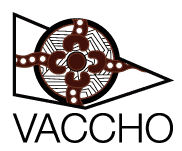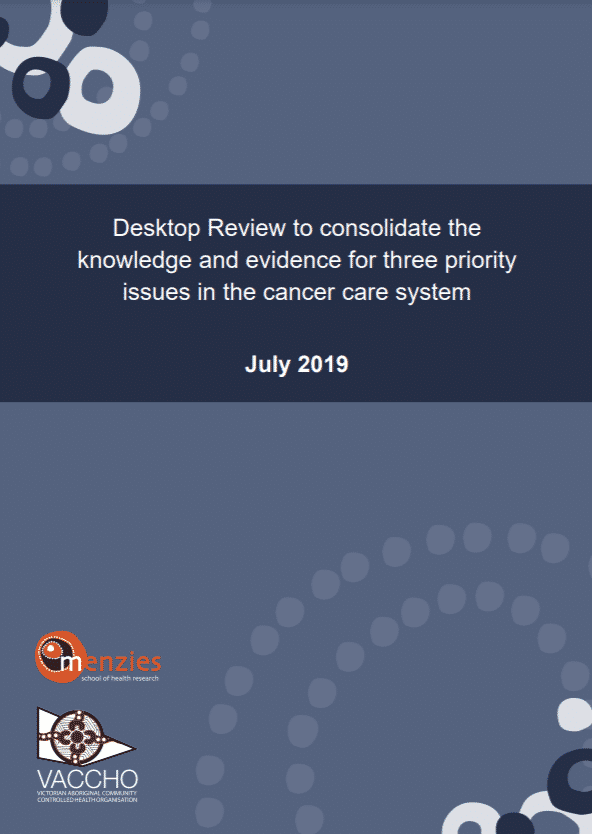Desktop Review – Three priority issues in the cancer care system
VACCHO commissioned a Desktop Review to consolidate the knowledge and evidence for three priority issues in the cancer care system.
Developed by the Menzies School of Health Reasearch, the Desktop Review to consolidate the knowledge and evidence for three priorities issues in the cancer care system was commissioned to inform the Improving Cancer Outcomes for Victorian Aboriginal Communities Working Group about existing evidence and knowledge in the areas of:
- Improving Aboriginal participation in clinical trials and research
- Improving culturally safe and effective cancer treatment for Aboriginal people with cancer
- Improving Aboriginal people’s self-identification and the quality of cancer data.
Extensive searching of the peer-reviewed and grey literature was undertaken. This report provides information on the 11 specific questions posed on behalf of the Working Group and identifies gaps and potential next steps.
What does the Desktop Review tell us?
- Targeted strategies addressing the level of Aboriginal people’s participation in clinical trials and research are required. While some progress has been made in terms of the number of Aboriginal-specific clinical trials being conducted, there remain many gaps.
- Improving Aboriginal identification and ensuring culturally safe and effective cancer treatment for Aboriginal people with cancer both require multiple strategies across many levels to improve outcomes. Both service innovation and ongoing research and evaluation are needed.
- Strategies and actions to accelerate progress across the three priority areas must be led by Aboriginal people, as Aboriginal leadership and engagement are essential and indispensable elements for success. It is therefore critical to ensure that appropriate structures and supports are in place to facilitate the genuine inclusion of Aboriginal people and organisations in determining future directions.
The findings from the Desktop Review continue to inform VACCHO’s work in a culturally safe and self-determined way. We acknowledge and give thanks to all those that contributed to this important work.
Enquiries
Got a query? Get in touch by filling out and submitting the form below or by phone 03 9411 9411.

